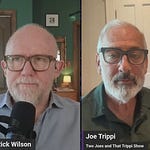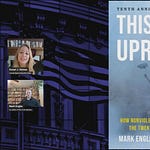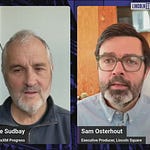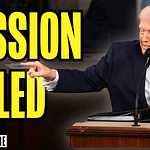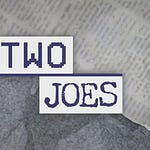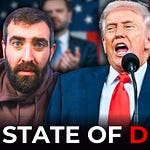Rev. Quincy Worthington calls Broadview’s ICE facility “a test site for martial law,” where protest is met with state-sanctioned violence.
Edwin Eisendrath warns that Chicago’s peaceful defiance may be the administration’s undoing, calling it “the president’s Waterloo.”
Worthington draws a moral line between faith and nationalism, arguing that “any scripture used to justify domination is an affront to the gospel.”
Both men see Chicago’s resistance as a spiritual act — proof that grace, not fear, defines democracy’s survival.
For Reverend Quincy Worthington, witnessing the escalation at Broadview has been a spiritual reckoning. He’s seen clergy and protesters “corralled into free speech zones” and shot at with pepper balls meant for the ground, not people. “If they’re willing to treat American citizens this way in broad daylight,” he warned, “I’m terrified for what might be going on behind closed doors.” His presence there isn’t just pastoral — it’s prophetic, a living rebuke to a government that treats compassion like a threat.
Edwin pushed that point further, framing Chicago’s response as the antithesis of what authoritarianism hopes for. The city hasn’t taken the bait. Despite tear gas and rubber bullets, the crowds remain peaceful, defiant, and, in Edwin’s words, “generous and determined.” That collective restraint — clergy in robes beside citizens in masks — is itself an act of resistance, a refusal to let provocation rewrite moral order. In the face of escalating cruelty, this calm resolve feels less like strategy and more like faith embodied, a moral discipline learned over generations of struggle.
The deeper question is what kind of faith can withstand fear. When belief bends to power, it ceases to be faith at all; it becomes propaganda in vestments. The moral tradition that built democracy was never about obedience — it was about conscience. Every generation faces a test of whether its convictions will serve comfort or courage, and this one is unfolding in the tear gas and prayer circles outside a detention center. Real faith doesn’t hide behind scripture to justify brutality; it shows up in the streets, unarmed but unyielding, bearing witness even when no one’s watching.
Faith in democracy has always been an act of grace — costly, imperfect, and endlessly renewed by those willing to risk for it. That’s what makes Chicago’s resistance not just political, but profoundly spiritual. It’s the kind of courage that refuses to let cruelty masquerade as order, or silence pose as peace. Every protest, every prayer, and every act of witness becomes a small restoration of the country’s conscience.
Tune in for the full conversation, now!




